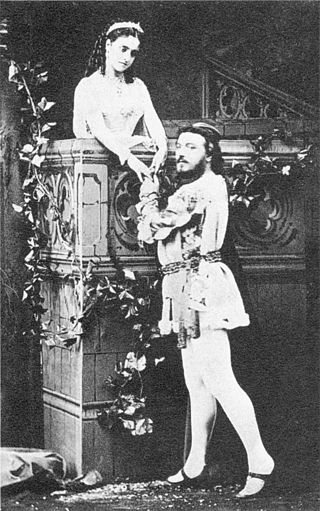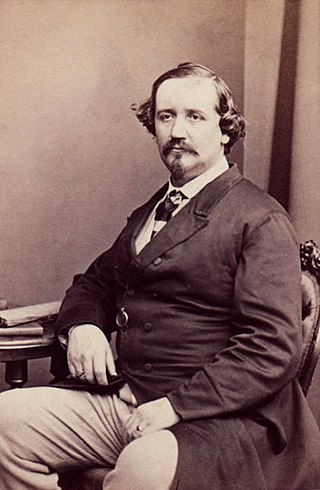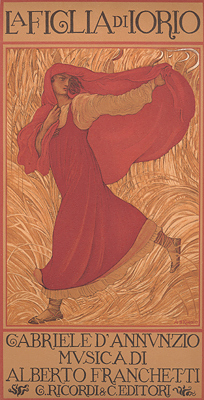Related Research Articles

Dido and Aeneas is an opera in a prologue and three acts, written by the English Baroque composer Henry Purcell with a libretto by Nahum Tate. The dates of the composition and first performance of the opera are uncertain. It was composed no later than July 1688, and had been performed at Josias Priest's girls' school in London by the end of 1689. Some scholars argue for a date of composition as early as 1683. The story is based on Book IV of Virgil's Aeneid. It recounts the love of Dido, Queen of Carthage, for the Trojan hero Aeneas, and her despair when he abandons her. A monumental work in Baroque opera, Dido and Aeneas is remembered as one of Purcell's foremost theatrical works. It was also Purcell's only true opera, as well as his only all-sung dramatic work. One of the earliest known English operas, it owes much to John Blow's Venus and Adonis, both in structure and in overall effect.
Sir Lennox Randal Francis Berkeley was an English composer.

Michael Fitzhardinge Berkeley, Baron Berkeley of Knighton, is an English composer, broadcaster on music and member of the House of Lords.

Ariadne auf Naxos, Op. 60, is a 1912 opera by Richard Strauss with a German libretto by Hugo von Hofmannsthal. The opera's unusual combination of elements of low commedia dell'arte with those of high opera seria points up one of the work's principal themes: the competition between high and low art for the public's attention.

Adriana Lecouvreur is an opera in four acts by Francesco Cilea to an Italian libretto by Arturo Colautti, based on the 1849 play Adrienne Lecouvreur by Eugène Scribe and Ernest Legouvé. It was first performed on 6 November 1902 at the Teatro Lirico in Milan.

Roméo et Juliette is an opera in five acts by Charles Gounod to a French libretto by Jules Barbier and Michel Carré, based on Romeo and Juliet by William Shakespeare. It was first performed at the Théâtre Lyrique, Paris on 27 April 1867. This opera is notable for the series of four duets for the main characters and the waltz song "Je veux vivre" for the soprano.

Walter Braunfels was a German composer, pianist, and music educator.

Alberto Franchetti was an Italian composer, best known for the 1902 opera Germania.

Oberon, or The Elf-King's Oath is a 3-act romantic opera with spoken dialogue composed in 1825–26 by Carl Maria von Weber. The only English opera ever set by Weber, the libretto by James Robinson Planché was based on the German poem Oberon by Christoph Martin Wieland, which itself was based on the epic romance Huon de Bordeaux, a French medieval tale. It was premiered in London on 12 April 1826.

Le Cheval de bronze is an opéra comique by the French composer Daniel Auber, first performed on 23 March 1835 by the Opéra-Comique at the Salle de la Bourse in Paris. The libretto is by Auber's regular collaborator, Eugène Scribe and the piece was a great success in its day. In 1857, it was transformed into an opera-ballet, but this did not hold the stage. The overture is one of Auber's most popular. The first-act finale expands on the final phrases from the first-act finale of Mozart's Così fan tutte. The composer tried to reflect the Chinese setting of the story in the music.

Willoughby Hunter Weiss was an English oratorio and opera singer and composer. He became one of the most celebrated bass singers of the 19th century, and sang in the premieres of many English works.

La figlia di Iorio, sometimes written as La figlia di Jorio, is an opera in three acts by Alberto Franchetti to a libretto by Gabriele D'Annunzio. The libretto is a very close rendering of D'Annunzio's play of the same name. La figlia di Iorio premiered at La Scala on 29 March 1906, conducted by Leopoldo Mugnone. Although the play, which had premiered two years earlier, was considered one of D'Annunzio's greatest works, the opera did not achieve a comparable success and has been rarely performed since its day.

La cambiale di matrimonio is a one-act operatic farsa comica by Gioachino Rossini to a libretto by Gaetano Rossi. The libretto was based on the play by Camillo Federici (1791) and a previous libretto by Giuseppe Checcherini for Carlo Coccia's 1807 opera, Il matrimonio per lettera di cambio. The opera debuted on 3 November 1810 at the Teatro San Moisè in Venice. It had a run of thirteen performances at Teatro San Moisè.
Baritenor is a portmanteau (blend) of the words "baritone" and "tenor". It is used to describe both baritone and tenor voices. In Webster's Third New International Dictionary it is defined as "a baritone singing voice with virtually a tenor range". However, the term was defined in several late 19th century and early 20th century music dictionaries, such as The American History and Encyclopedia of Music, as "a low tenor voice, almost barytone [sic]."

Lurline is a grand romantic opera in three acts composed by William Vincent Wallace to an English libretto by Edward Fitzball. It was first performed on 23 February 1860 at the Theatre Royal, Covent Garden by the Pyne and Harrison English Opera Company with Louisa Pyne in the title role. The libretto is based on the legend of the Lorelei.

Josef Staudigl was an Austrian bass singer.
John Hamilton Warrack is an English music critic, writer on music, and oboist.
The Lodger is an opera in two acts composed by Phyllis Tate. The libretto is by David Franklin, after the 1913 novel of the same name by Marie Belloc Lowndes. The opera was commissioned by the Royal Academy of Music, with a grant from the William Manson Fund, and the premiere took place there on 16 July 1960.
Figaro Gets a Divorce is an opera by the Russian-British composer Elena Langer to a libretto by David Pountney. It premiered on 21 February 2016 at the Welsh National Opera at Cardiff.
References
Notes
- 1 2 Anon (n.d.), "Berkeley, L (A) Dinner Engagement", Gramophone magazine, accessed 11 June 2018.
- 1 2 Rosenthal and Warrack (1979), p. 135
- 1 2 Wearing (2014), p. 330
- ↑ Anon (2018), p. [4]
Sources
- Anon (2018), " The Long Christmas Dinner and A Dinner Engagement" (programme), London: Guildhall School of Music and Drama.
- Rosenthal, Harold and Warrack, John (1979). The Concise Oxford Dictionary of Opera, 2nd edition. London: Oxford University Press, ISBN 019311318X
- Wearing, J. P. (2014). The London Stage 1950–1959: A Calendar of Productions, Performers, and Personnel , Plymouth: Rowman & Littlefield. ISBN 9780810893078